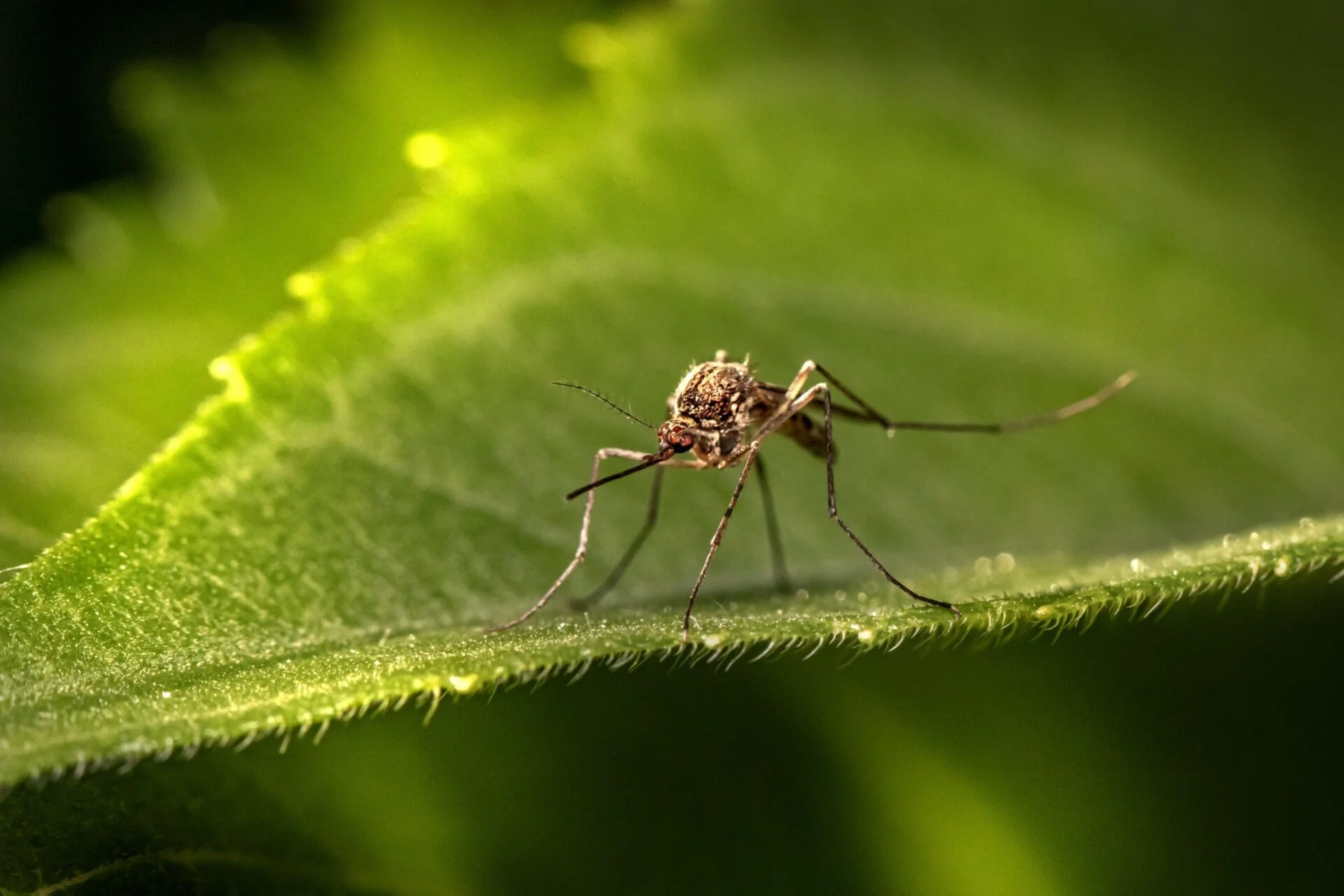When you’re enjoying time outside, dealing with annoying mosquitoes buzzing around you, your family, or guests can be frustrating. Chemical sprays and repellents aren’t always the best option, and pesticides can harm wildlife and even kill helpful pollinators.
Luckily, there are natural, non-toxic ways to repel and avoid mosquitoes in your yard. Some methods can even improve your garden—whether by adding fragrant plants or features that attract wildlife.
Keep reading to discover how to naturally eliminate mosquitoes in your backyard.
Plant Natural Repellents in the Garden
Many plants act as natural mosquito repellents, and adding them to your garden can significantly reduce mosquito presence. These fragrant blooms not only deter mosquitoes but also draw in beneficial pollinators.
Some of the best plants include: bee balm, lavender, alliums, perennial geraniums, ageratum, marigolds, and flowering catmint. Planting garlic or chives in your vegetable garden can also help keep mosquitoes away.
Want more gardening advice? Sign up for our free gardening newsletter for top growing tips, troubleshooting tricks, and more!
Place Mosquito-Repelling Potted Plants Around Your Patio
Potted plants add beauty to your patio in summer, and choosing mosquito-repelling varieties adds extra protection. Growing herbs in containers is simple, and having them nearby not only keeps mosquitoes at bay but also provides fresh herbs for cooking or drinks.
The best container herbs for repelling mosquitoes include peppermint, thyme, nasturtiums, lemon balm, rosemary, basil, and lemongrass.
Use Citronella Products
Citronella comes from a type of geranium (Pelargonium citrosum ‘van Leenii’), also called the “mosquito plant,” which has a strong scent that mosquitoes hate. Its essential oil is used in many repellent products and works well to keep these pests away.
Citronella products for your backyard include outdoor candles, lamp oil for tiki torches (some eco-friendly options are available), insect-repellent sprays, and incense coils.
Make Natural Sprays
Creating your own insect-repellent spray with essential oils is simple. You’ll need a glass spray bottle (glass is better than plastic since essential oils can degrade plastic), water, a bit of vodka (to help disperse the oils), and a mix of essential oils.
For an 8-ounce bottle, fill it almost to the top with water, add a teaspoon of vodka, and 20-25 drops of essential oils in total. Shake gently before each use. The best essential oils for repelling mosquitoes include citronella, geranium, sweet basil, lemongrass, cedarwood, lavender, peppermint, and eucalyptus. Try blending at least three different oils.
Set Up a Mosquito Trap
Using a simple trap can help catch mosquitoes already in your yard. While many store-bought traps use harsh chemicals or loud bug zappers, you can make your own with household items.
DIY mosquito traps often use yeast, sugar, vinegar, baking soda, or dry ice. Try making these easy homemade traps for a chemical-free solution.
Remove Standing Water
Standing water is a prime breeding ground for mosquitoes. After rain, check for water collecting in buckets, flower pots, or candle holders. Keeping your garden tidy helps prevent stagnant water buildup.
If you have a water feature, keep it clean and avoid stagnant water. Cleaning it with vinegar or other anti-fungal solutions prevents scum buildup (which mosquitoes love). Always check for standing water after rain and remove it immediately.
Keep Weeds and Overgrowth in Check
Trimming excess vegetation helps reduce insect populations. More plant growth means more surfaces for insects to feed, breed, or rest. Prune shrubs regularly, especially near seating areas like patios.
Prevent weeds from getting out of control by weeding often and using effective weed management techniques.
Use Outdoor Fans
Mosquitoes thrive in still air, so running fans outdoors can help keep them away. Special “mosquito fans” exist, but regular fans work just as well.
Position fans to blow air toward your seating area to deter mosquitoes. If possible, installing a ceiling fan can provide steady airflow.
Attract Mosquito-Eating Wildlife
Many animals and birds eat mosquitoes, and inviting them into your yard boosts biodiversity. Creating wildlife-friendly spaces can help control mosquitoes naturally.
Consider adding water features with frogs or turtles, setting up bird feeders to attract insect-eating birds (like cardinals and chickadees), or keeping chickens.
Install a Bat Box
Bats are excellent mosquito hunters and also help with pollination. Adding a bat box gives them a safe place to live while keeping your yard mosquito-free.
Bat boxes are typically mounted on trees, and bats will consume large numbers of mosquitoes throughout the season.
Avoid Fragrances That Attract Mosquitoes
Scented products—especially sweet or fruity ones—can attract mosquitoes. They’re also drawn to the smell of ripe fruit like mangoes, melons, pineapple, and citrus, so be mindful when serving fruit outdoors.
If you use perfumed hair, skin, or laundry products, switching to unscented options may help reduce mosquito attraction.
Mosquito Prevention Tips
Though mosquitoes are a common nuisance, there are many ways to keep them under control in your backyard. Different approaches suit various needs, budgets, and landscapes.
- Keep water features clean and circulating
- Trim shrubs and control weeds
- Eliminate standing water
- Avoid sweet or fruity fragrances
- Plant mosquito-repelling plants and herbs

